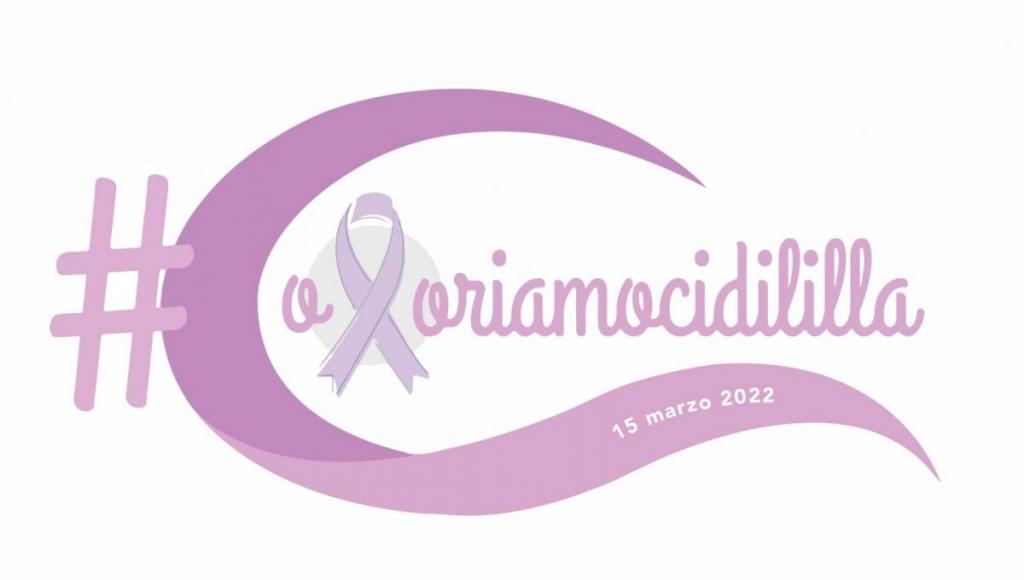In Italy 2,665,000 adolescents have problems related to food, their weight and look. Only 10% of those who suffer from eating disorders asks for help and generally no earlier than three years from the onset of the initial symptoms.
F or the National Lilac Ribbon Day dedicated to eating disorders, held annually on March 15, we have interviewed Stefania Sinesi, founder, President and Scientific Coordinator of Never Give Up. A psychologist, psychotherapist and PhD, Stefania teaches at the Universities of Perugia, Camerino, and at the Rome Campus Bio-Medico.
or the National Lilac Ribbon Day dedicated to eating disorders, held annually on March 15, we have interviewed Stefania Sinesi, founder, President and Scientific Coordinator of Never Give Up. A psychologist, psychotherapist and PhD, Stefania teaches at the Universities of Perugia, Camerino, and at the Rome Campus Bio-Medico.
Never Give Up is one of the associations participating in Project Health4U, the programme aiming to orient and train students towards university and professional careers, promoted by the Fondazione Johnson&Johnson with a focus on health, wellbeing and life sciences.

INTERVIEW WITH STEFANIA SINESI
What are eating disorders?
Eating disorders are complex psychiatric issues. The main ones are anorexia, bulimia and binge eating disorder.
In Italy, which people are most affected by eating disorders?
There are over 3 million people in Italy who are overweight and have problems with food and their body. Every year, 3240 people die of anorexia and bulimia, and eating and nourishment disorders are the first cause of death in the 12-25 age group. Unfortunately, these disorders are appearing earlier and earlier, even starting at 8-9 years old.
Has the pandemic had an effect on eating disorders?
Unfortunately, the Covid pandemic further increased the number of eating disorders, and this is a clear signal that the coronavirus is not only a threat to our physical health, but also has an impact – even dramatic, at times – on mental health, especially that of adolescents. In particular, there was a marked increase amongst younger males.
What elements can concur to the development of eating disorders? Which are useful as prentive measures?
Eating disorders have a complex aetiology. Protective factors include a positive family context, acceptance of one’s body, self-esteem and the ability to face stressful events.
Who should one turn to when confronted with eating disorders?
A multidisciplinary team specialising in eating disorders.
What factors keep individuals from asking for help when facing eating disorders?
The fear of asking for help, the fear of judgement, the fear of admitting to having a problem. Often, even parents may have issues asking for help because they fear that these disorders concern and may be the fault of the entire family. In reality, families are a great resource, not just to recognise such issues, but also for their treatment.
How can we understand if someone we love has an eating disorder?
There are different alarm signals that parents may notice at the table: cutting food up in small bits, refusing certain foods, a different type of behaviour and running to the bathroom right after a meal. However, there also are differences in behaviour like reduced social behaviour and apathy.
How can we help individuals with eating disorders? What should we do and what shouldn’t we do?
Make them feel welcome and not judge them but support them in asking for help and contacting professionals. We should avoid concentrating only on the relationship with food. In eating disorders, food, weight and body are just the tip of the iceberg of a more complex distress.
Why is it important to address these issues at school?
It’s important to talk about these issues to overcome barriers and allow those who need it to ask for help. The most dramatic aspect is that 70% of those with these disorders are adolescents. If we intercept and treat these problems timely, they can be cured. Unfortunately, however, only 10% of those suffering ask for help and, on average, three years after the onset of symptoms. These issues must be addressed at school by providing professional experiences that can help to overcome them. Contrarily, just speaking about the symptoms may have an iatrogenic effect and increase the insurgence of such problems.

 The next session of Programme Health4U will be held on Thursday, March 17 (3-5 pm). Students will meet with Stefania Senesi for Module 10 dedicated to food and nourishment disorders.
The next session of Programme Health4U will be held on Thursday, March 17 (3-5 pm). Students will meet with Stefania Senesi for Module 10 dedicated to food and nourishment disorders.

The communication campaign directed by Oscar-winning Director Danis Tanović on breaking down the wall of silence that conceals those suffering from eating disorders.



